Winter has arrived, with temperatures dropping sharply, the world freezing, and everything lying dormant. Cold evils invade the body, physiological functions decline, and the body's activities enter a state of inhibition, with yang energy gradually weakening. Especially for women, cold hands and feet and reduced immunity become noticeable. Drinking tea in winter can help ward off the cold, but what kind of tea is best? Winter is cold, making warm teas like black tea and Liubao tea ideal choices.
Liubao tea is produced in Liubao Town, Cangwu County, Wuzhou, Guangxi. Like Longjing tea, it is named after its place of origin. Wuzhou's unique terrain, described as "eight parts mountains, one part water, and one part fields," combined with its warm and humid climate, makes it a paradise for tea tree growth. So, what specific health benefits does Liubao tea offer?
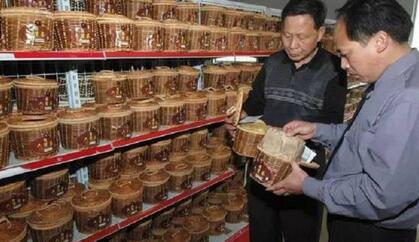
Health Benefits of Liubao Tea
1. Warms the Stomach
Winter is the coldest season, and the body's physiological functions decline due to the cold, reducing resistance. Liubao tea is a post-fermented tea, and the caffeine that irritates the stomach is reduced during fermentation, avoiding gastrointestinal irritation. Additionally, Liubao tea contains warm substances like theaflavins, making it excellent for warming the stomach, helping the body resist the cold, and boosting immunity.
2. Aids Digestion
Compared to other seasons, winter involves less physical activity and higher meat consumption. Drinking black tea can promote digestion, break down meat and fats, and regulate the body's metabolism of sugar, fats, and water, significantly aiding stomach health.
3. Cleanses the Intestines
In winter, appetite increases, and the body tends to store fat, making weight gain more likely. For those who enjoy rich foods, drinking black tea can eliminate greasiness, cleanse the intestines, and help lower lipids, protect blood vessels, and prevent obesity. The cellulose and other macromolecules in tea are degraded by enzymes secreted by golden flower bacteria, producing low-molecular-weight oligosaccharides—dietary fibers that aid weight loss, cleanse the intestines, and stimulate beneficial gut microbe growth. Consistent consumption over time yields noticeable weight loss effects.
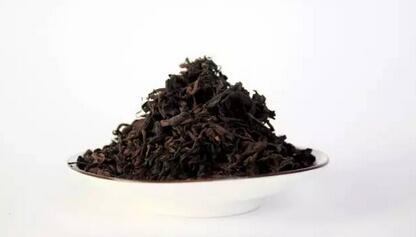
4. Beautifies the Skin
For women, winter often brings cold hands and feet and a cold constitution. Regular consumption of black tea can enhance metabolism, promote blood circulation, and warm the body. Additionally, black tea contains theaflavins, theanine, and tea polysaccharides, especially complex flavonoids, which have strong antioxidant properties, clearing free radicals and slowing cell aging for a beautifying effect.
5. Regulates Blood Pressure, Blood Sugar, and Cholesterol
The theanine in black tea inhibits blood pressure increases; alkaloids and flavonoids relax blood vessels, widening them to lower blood pressure; theaflavins soften blood vessels, effectively clearing plaque and acting as cardiovascular "scavengers." The unique tea polysaccharides in Hunan Anhua black tea function like insulin, lowering blood sugar. Tea polyphenols and their oxidation products dissolve fats, promoting lipid excretion and reducing cholesterol, thus decreasing arterial fat deposition and atherosclerosis risk. They also activate protein kinases, accelerating fat breakdown and reducing body fat. This makes it ideal for the elderly and those with high blood pressure, sugar, or cholesterol.
6. Dispels Dampness and Toxins
Liubao tea naturally warms the stomach, clearing dampness from the spleen and stomach. In the humid climates of Guangdong and Guangxi, drinking Liubao tea can dispel dampness and relieve heat. Some tea drinkers report diarrhea after drinking Liubao tea—a bodily reaction to dispelling dampness, not pathological diarrhea, which typically causes weakness. Dampness is sticky and heavy, sinking downward; those with dampness may feel "legs like lead." Removing dampness brings lightness, not weakness, making it suitable for conditions like gout caused by damp-heat.
The market offers a variety of Liubao teas with diverse flavors, some odd like mothball, mud, horse urine, or cockroach droppings. Traditional Liubao raw tea features betel nut, pine smoke, medicinal, honey, or floral aromas. Modern processed Liubao ripe tea offers woody, jujube, or ginseng notes.
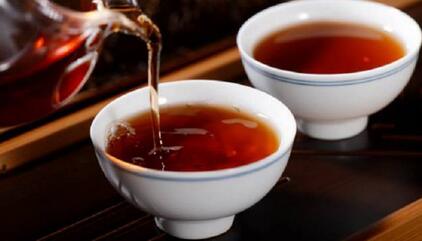
Aroma Types of Liubao Tea
1. Betel Nut Aroma
The pinnacle of Liubao tea aromas, appearing in well-aged teas. Some texts refer to it as "betel nut flavor." Liubao tea's unique betel nut aroma earned it a place among the 24 famous teas of the Qing Dynasty. High-quality aged Liubao teas develop this aroma, which can be replicated, experienced, described, and compared.
2. Pine Smoke Aroma
Tea literature mentions that good Liubao tea develops pine smoke and betel nut aromas, making pine smoke a classic Liubao scent. Some might mistake it for smoke from firewood, like smoked bacon or Zhengshan Xiaozhong's smoking process, but this is incorrect. The pine smoke aroma is natural, not from smoking, and serves as a marker for authentic Liubao tea.
3. Medicinal Aroma
Tea literature mentions that good Liubao tea develops pine smoke and betel nut aromas, making pine smoke a classic Liubao scent. Some might mistake it for smoke from firewood, like smoked bacon or Zhengshan Xiaozhong's smoking process, but this is incorrect. The pine smoke aroma is natural, not from smoking, and serves as a marker for authentic Liubao tea.
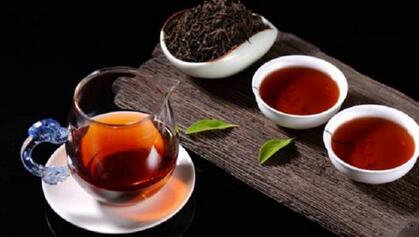
4. Honey Aroma
A light honey fragrance appears in newer raw Liubao teas. Those familiar with Liubao tea flowers will recognize this unique scent.
5. Jujube Aroma
A sweet jujube fragrance, common in aged ripe teas, especially when brewed.
6. Woody Aroma
A type of aged aroma in Liubao tea, resembling wood or medicine, often pine resin or jujube wood. Common in ripe teas.
7. Ginseng Aroma
An aged aroma resembling ginseng. Northerners might mistake it for a bad smell, like earth or wet storage. To identify wet storage, brew the tea: cloudy broth and unpleasant smells indicate wet storage, while clear broth and sweet aromas signify good tea. Aged teas naturally have some fermentation notes. Teas with ginseng aroma often brew into red bean soup scents. These are Liubao tea's typical aromas. Newer teas may have floral or fruity notes, but aged Liubao teas generally exhibit the above scents.
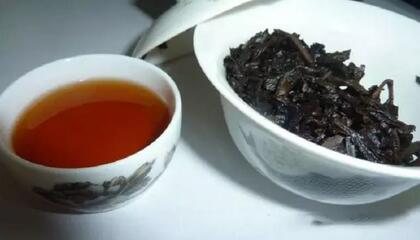
Some believe raw Liubao tea turns into ripe tea over time, as if ripe tea is the goal. This is untrue; raw tea aged for 10 years surpasses ripe tea in quality. Hence, some argue "the older, the better" applies only to raw tea. Historically, ripe tea dominates the market, which has its merits but risks losing Liubao tea's high-end flavors. Many, especially outsiders unfamiliar with raw tea, seek betel nut aromas in ripe tea, leading some sellers to market ripe teas as having betel nut aromas, resulting in varied interpretations.
Raw Liubao tea's transformation follows this pattern: raw tea remains raw, developing betel nut aromas over time, with bright orange-red broth, smooth taste, and unique "Liubao charm." Aged raw tea is durable, retaining betel nut aromas over 20-30 brews, with a mellow aftertaste. The transformation progresses from floral and honey aromas to pine smoke and medicinal notes, then betel nut.
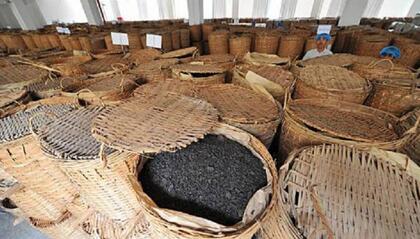
Ripe Liubao tea is marketed after one year of aging, often with slight bitterness or green notes. After 5-8 years, it reaches better flavor, with red broth and jujube or woody aromas. Further aging depends on the tea base; some develop ginseng notes, others sweeten, while some lose aroma. Good ripe teas peak in flavor and aroma around 15 years, while poorer ones fade.
Liubao tea's aging process is complex, hard to describe. But tea's essence lies in taste and health, not age or other factors. Ultimately, good tea is subjective—if a 10-year-old tea tastes bad, it's worthless.
Finally: Drinking good tea is serendipity; making good tea requires sincerity, especially for Liubao tea.